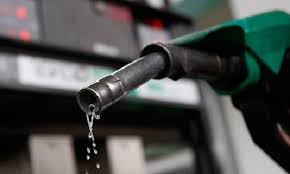Local Refiners Predict Major Drop in Fuel Prices with Government Support

The price of Premium Motor Spirit (PMS), commonly known as petrol, could plummet to around N300 per litre if local production by the Dangote Petroleum Refinery and other domestic producers ramps up significantly, according to the Crude Oil Refinery Owners Association of Nigeria (CORAN).
In a recent statement, CORAN emphasized the potential for substantial price reductions if the federal government ensures an adequate supply of crude oil to local refineries. Currently, petrol prices hover near N700 per litre. Eche Idoko, CORAN’s Publicity Secretary, stated, “The Dangote refinery’s full production will positively impact fuel prices, bringing relief to Nigerian consumers.”
The association criticized the current reliance on foreign refineries, arguing that it allows these entities to profit at Nigeria’s expense. Idoko highlighted the importance of selling crude oil to local refiners at the naira equivalent of the dollar rate. “This approach would not only help strengthen the naira but also reduce consumer costs,” he added.
Nigeria has 25 licensed modular refineries, with five currently operational and producing products such as diesel and kerosene. However, securing crude oil remains a significant challenge, hindering many plants from obtaining necessary financing and scaling operations.
Aliko Dangote, in May 2024, announced that his refinery’s production plan aimed to eliminate Nigeria’s need to import petrol by June. The Dangote refinery has already influenced diesel prices and aims to meet the fuel needs of West Africa and beyond.
Oil marketers, represented by the Independent Petroleum Marketers Association of Nigeria (IPMAN), have expressed optimism about lower petrol prices with increased local production. IPMAN President Abubakar Maigandi remarked, “Marketers are hopeful for petrol prices around N500 per litre, which is lower than the current NNPC rate of N565.50 per litre, though specific pricing details from the Dangote refinery are still pending.”
Regulatory bodies have shown support for ensuring a consistent crude oil supply to domestic refiners, which is expected to stabilize and reduce petroleum product prices across the country.
The path to achieving these projected lower fuel prices hinges on the government’s ability to provide steady crude oil supplies to local refineries. This strategic move could transform the petroleum sector, benefiting Nigerian consumers and the broader economy.






